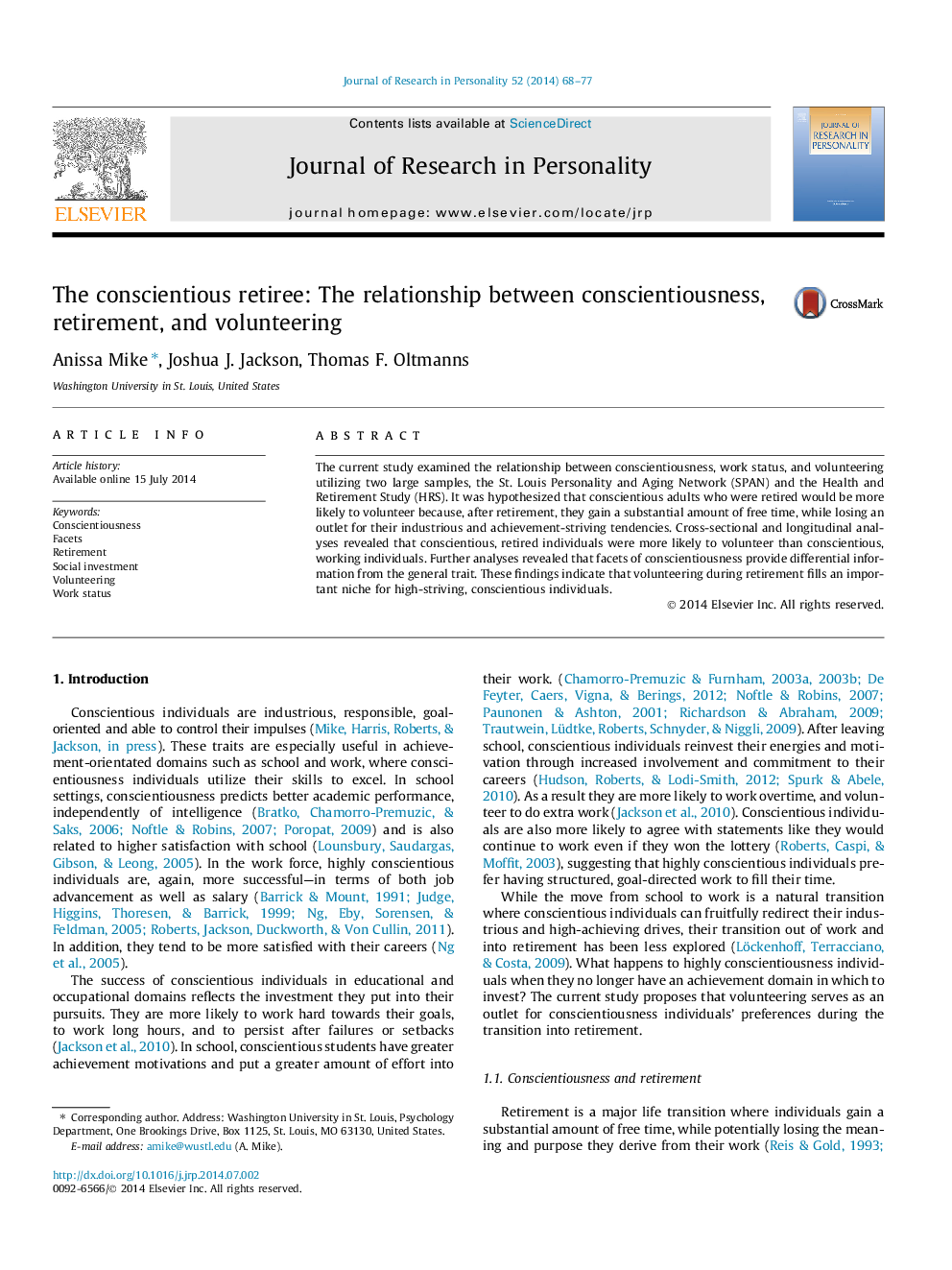| Article ID | Journal | Published Year | Pages | File Type |
|---|---|---|---|---|
| 951297 | Journal of Research in Personality | 2014 | 10 Pages |
•We examined the relationship between conscientiousness, volunteering, and work status.•Retired, conscientious individuals were more likely to volunteer than their working counterparts.•These results were true across two datasets as well as longitudinally.•At the facet level, achievement striving was an especially important predictor of volunteering.
The current study examined the relationship between conscientiousness, work status, and volunteering utilizing two large samples, the St. Louis Personality and Aging Network (SPAN) and the Health and Retirement Study (HRS). It was hypothesized that conscientious adults who were retired would be more likely to volunteer because, after retirement, they gain a substantial amount of free time, while losing an outlet for their industrious and achievement-striving tendencies. Cross-sectional and longitudinal analyses revealed that conscientious, retired individuals were more likely to volunteer than conscientious, working individuals. Further analyses revealed that facets of conscientiousness provide differential information from the general trait. These findings indicate that volunteering during retirement fills an important niche for high-striving, conscientious individuals.
